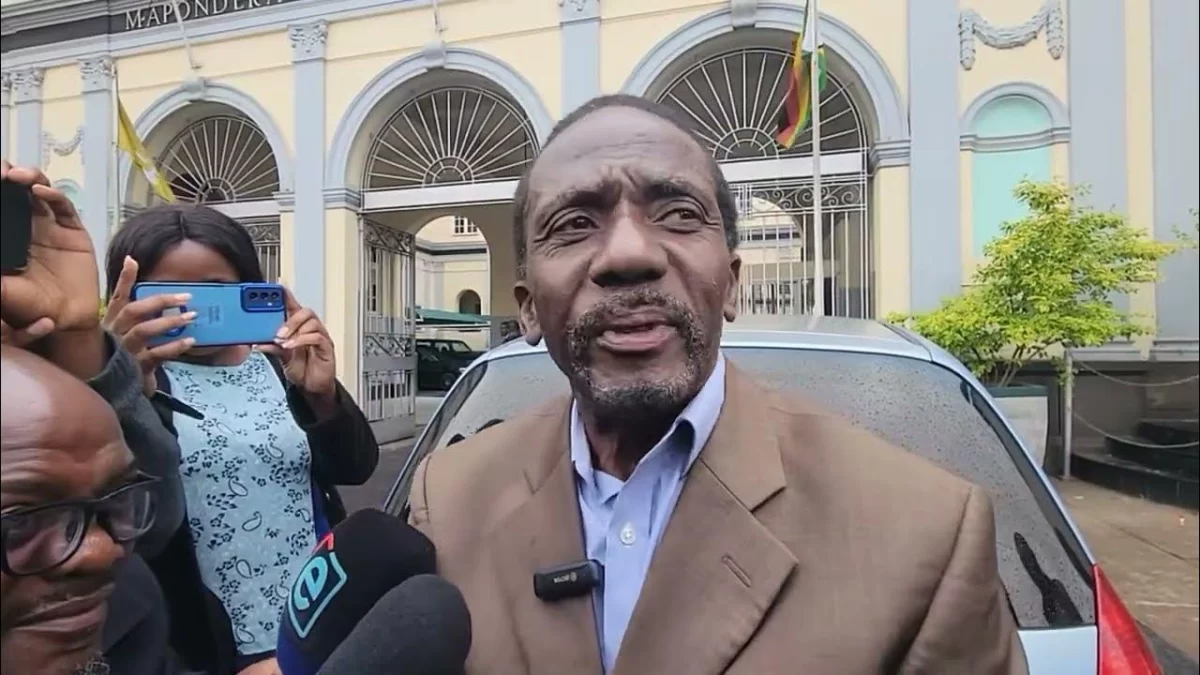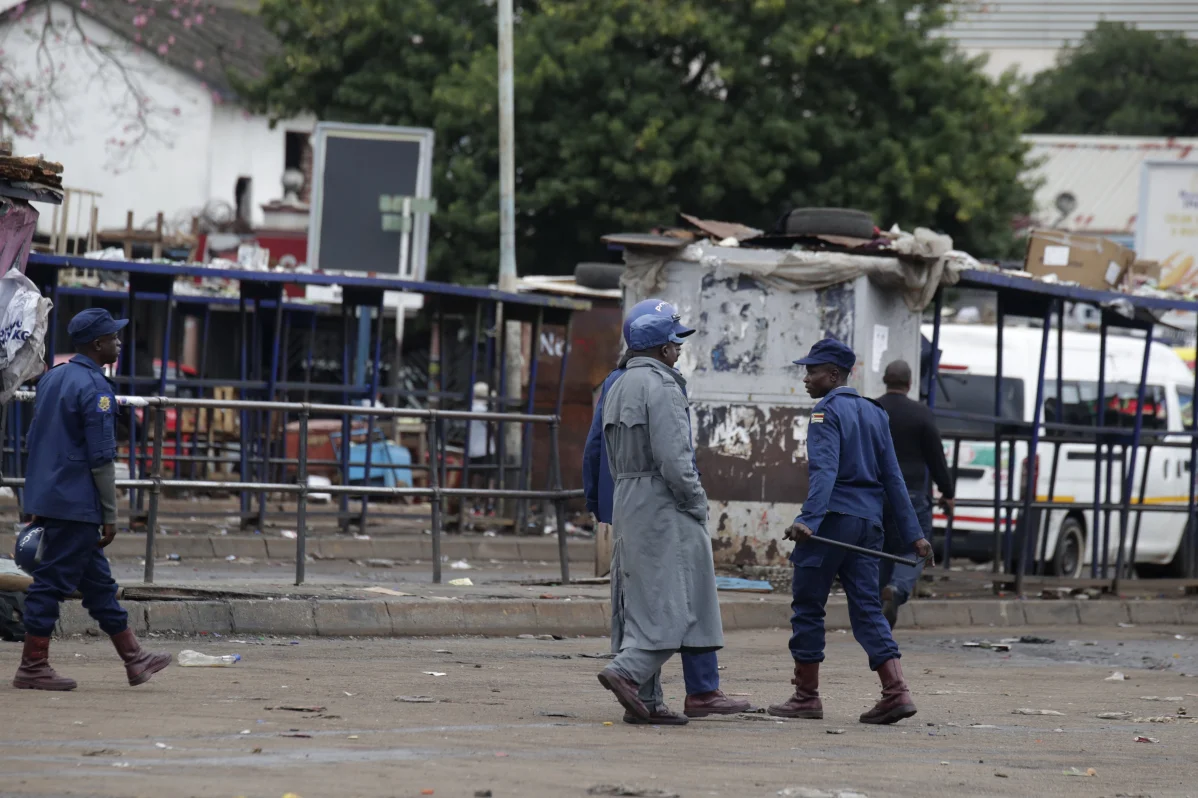HARARE – The Citizens Coalition for Change party led by Jameson Timba on Wednesday suffered a setback in its bid to claim ZiG 22.1 million under the Political Parties (Finance) Act after a judge ruled that its application seeking to bar the government from disbursing the money to rival factions was not urgent.
The CCC party is split three-way with Timba’s faction pitted against two others led by Welshman Ncube and Sengezo Tshabangu.
All three factions have written letters to justice minister Ziyambi Ziyambi demanding to be given the funds due to the CCC after the party emerged as the main opposition in elections held in August last year.
A share of political party funds is calculated based on a party’s electoral performance at the last general election. Zanu PF is getting the lion’s share of ZWG 47.9 million.
Timba’s CCC, in its High Court application launched on September 29, cited the justice minister, finance minister and Tshabangu as first, second and third respondents. The CCC led by Ncube, and Ncube himself, later applied for a joinder which was granted without opposition.
The Timba faction, made up of loyalists of former leader Nelson Chamisa, asked the High Court to issue an order interdicting Ziyambi and finance minister Mthuli Ncube “from disbursing the sum of ZiG 22,116,500 or any portion therefore or any other sums of money due to the Citizens Coalition for Change (CCC) to 3rd Respondent (Tshabangu) or to any one acting on his behalf or to anyone else.”
Justice Faith Mushure, in an October 16 judgment, said Timba’s CCC had failed to establish that the application was urgent.
The judge said Timba had written a string of letters to Ziyambi starting on October 16 last year requesting that the CCC allocation be deposited in a particular bank account number of the party.
The party said it acted out of concern following media reports that the government intended to pay out the money to Tshabangu, who emerged after last year’s elections claiming to be the CCC’s secretary general.
Ziyambi, contrary to legal requirements, ignored Timba’s letters.
Said Justice Mushure: “The provisions of section 4(2) of the Act are couched in peremptory terms. The first respondent (Ziyambi) was obliged to respond to the application. He did not. Contrary to the applicants’ averments that they could not act before the gazettement of the funds to be allocated in terms of the Act, the first applicant’s right to response was triggered by the lodgement of an application for funds in terms of the Act and not the gazettement of the intended allocation. See section 4(1) of the Act.
“Despite this, the first applicant (Timba CCC) did not do anything to assert its right to that response from the first respondent from October 16, 2023, until September 27, 2024, when they filed the current application.
“In light of the above, the applicants cannot now argue that the cause of action arose on September 19, 2024, when the first respondent (Ziyambi) did not respond to their letter. This was not the first time that the first respondent had not responded to their letter. For close to a year, the first respondent had not responded to their letters.
“The applicants could afford to wait for the first respondent’s response for three or four months, then follow up with another letter. At the very last minute, they then decided to give the first respondent an ultimatum to respond within 48 hours, failing which they would approach the court…
“On the facts placed before me, there was an undue delay and laxity on the part of the applicants in bringing this application to court. The factual circumstances giving rise to this urgent application were known to the applicant and have been ongoing since at least October 16, 2023. The applicant took no steps for a considerable period to prevent the irreparable harm it now perceives. An applicant is expected to have acted with the same urgency it wishes that the matter be accorded. The expectation is that, faced with the alleged failure to respond from the first respondent and the conflicting media reports, the applicant would have reacted immediately to remedy the irreparable harm, rather than standing back and doing nothing until it was too late.”
The judge also rejected the Timba CCC’s claims that it would suffer irreparable harm if the funds were released to rival factions.
“The applicants allege that if the application is not determined now, they will suffer irreparable harm. They argue that if the funds are disbursed to anyone other than the first applicant, there is no way of recovering them. They further argue that the amount is substantial and that the third respondent cannot pay it back. The applicants do not give cogent reasons for holding these views. They simply make bare allegations,” Justice Mushure noted.
“In my view, if the application is not determined now, the first applicant does not irretrievably lose its right to recover the money. Neither will the first applicant lose its right to the money. The first applicant’s right to the money remains open, even if the matter is not dealt with urgently.
“… I consider that the application must also fail on the aspect of consequence. The perceived irreparable harm that the first applicant will suffer is not properly substantiated.
“I, therefore, find that the applicants have not made a case for urgency. If anything, the urgency of the applicants’ claim is self-created… Accordingly, I make the following order: ‘The urgent chamber application for an interdict be and is hereby struck off the roll of urgent matters for lack of urgency with costs’.”
Ncube deposed an affidavit stating that his party was the legitimate CCC which should get the funding. He opposed the application by Timba’s faction arguing that it was not urgent.
Said the judge., “I, therefore, find that the applicants have not made a case for urgency. If anything, the urgency of the applicants’ claim is self-created… Accordingly, I make the following order: ‘The urgent chamber application for an interdict be and is hereby struck off the roll of urgent matters for lack of urgency with costs’.”
The ruling leaves the door open to ministers to release the funds to any of the three factions at their whim.
Judge rules Chamisa allies had failed to establish that the application was urgent
















